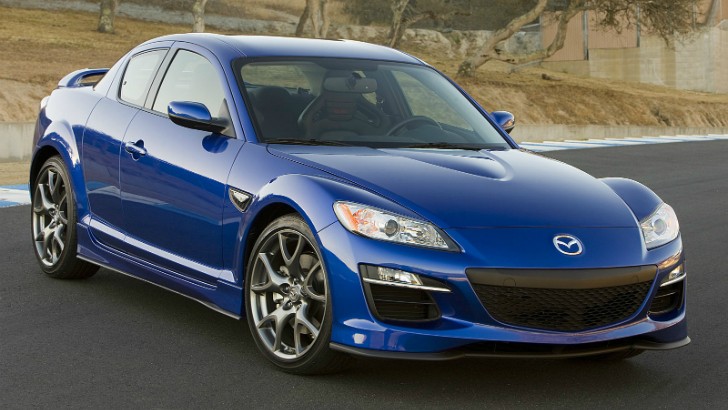The infamous Year of The Recalls may be over, but its effects are still lingering. On this occasion, we won’t talk about the GM ignition switch saga, but a similarly large-scale recall that involves Takata airbags.
In April 2013, the inevitable happened. Millions of vehicles were called back after automakers started to inform the NHTSA over an uncanny defect with the deployment of the airbag inflator. It’s not even worth mentioning that since then, a lot of other Takata airbag-related recalls were announced, including nearly all examples of the BMW E46 3 Series (made from 1998 to 2007).
To make a long story short, there’s this volatile propellant inside the airbag inflators that has been stored in humid places. This is the real reason the inflator would burst violently when the airbag deploys, sending sharp bits of metal right into the driver or passengers. Nasty stuff.
As expected, vehicles recalled because of the Takata airbag inflator-related fault started to depreciate more rapidly than unaffected cars. The peeps from iSeeCars.com published a study according to which the sale price of Takata-affected cars has dropped more than double the average for similar vehicles in the used car market, aka hyper-depreciation.
After analyzing more than 19 million vehicles offered for sale between October 2014 and February 2015, iSeeCars.com’s researchers found out an interesting fact. Cars called back over airbag-related issues experienced price drops that averaged 7.1 percent compared with the same time period a year prior. Compared to that, the average for non-recalled cars was 3.2 percent.
Interestingly enough, the rotary-engined Mazda RX-8 sports car is the most affected by depreciation, with an average price drop 3.5 times greater than similar non-recalled cars. According to the online automotive search engine and research website, that equates to losing roughly $763.
"It seems like the dramatic risk of injury associated with these defective airbags may have led to a decrease in perceived value. Since most consumers trade in their cars rather than sell them privately, it means they’re getting hit even harder on their trade-in values," explained iSeeCars.com CEO Phong Ly.
You know what really grinds my gears though? The NHTSA says that, on average, around 25 percent of Takata-recalled cars go unrepaired because the owners couldn’t be bothered to fix their cars.
If you want to learn about the other nine models most affected by the Takata airbag recalls in terms of resell price, access the PDF below to read iSeeCar’s newest study.
To make a long story short, there’s this volatile propellant inside the airbag inflators that has been stored in humid places. This is the real reason the inflator would burst violently when the airbag deploys, sending sharp bits of metal right into the driver or passengers. Nasty stuff.
As expected, vehicles recalled because of the Takata airbag inflator-related fault started to depreciate more rapidly than unaffected cars. The peeps from iSeeCars.com published a study according to which the sale price of Takata-affected cars has dropped more than double the average for similar vehicles in the used car market, aka hyper-depreciation.
After analyzing more than 19 million vehicles offered for sale between October 2014 and February 2015, iSeeCars.com’s researchers found out an interesting fact. Cars called back over airbag-related issues experienced price drops that averaged 7.1 percent compared with the same time period a year prior. Compared to that, the average for non-recalled cars was 3.2 percent.
Interestingly enough, the rotary-engined Mazda RX-8 sports car is the most affected by depreciation, with an average price drop 3.5 times greater than similar non-recalled cars. According to the online automotive search engine and research website, that equates to losing roughly $763.
"It seems like the dramatic risk of injury associated with these defective airbags may have led to a decrease in perceived value. Since most consumers trade in their cars rather than sell them privately, it means they’re getting hit even harder on their trade-in values," explained iSeeCars.com CEO Phong Ly.
You know what really grinds my gears though? The NHTSA says that, on average, around 25 percent of Takata-recalled cars go unrepaired because the owners couldn’t be bothered to fix their cars.
If you want to learn about the other nine models most affected by the Takata airbag recalls in terms of resell price, access the PDF below to read iSeeCar’s newest study.

